“But who do you say that I am?”
BY KEVIN YONKERS-TALZ | August 28, 2017
Sunday’s Readings
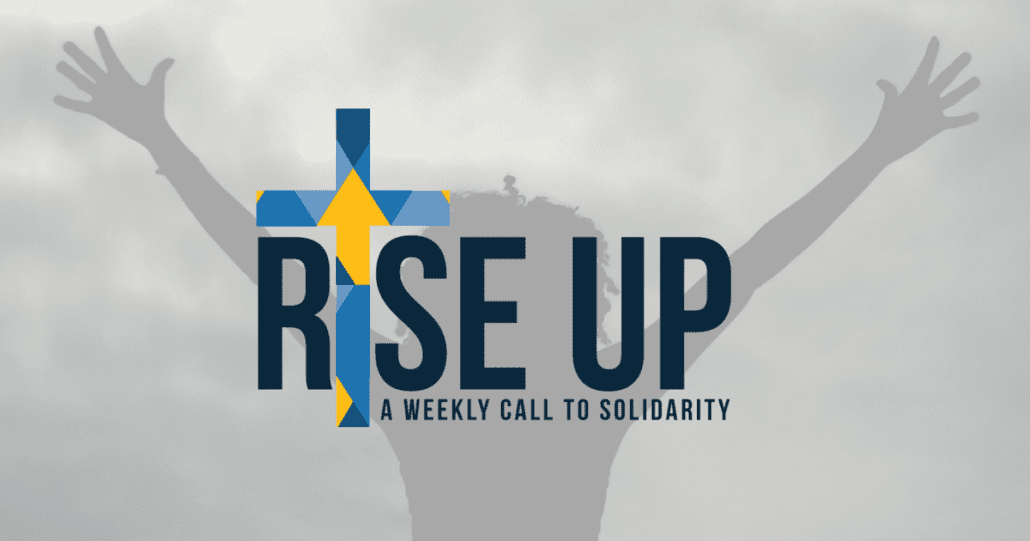
In today’s gospel reading, we find Jesus asking his disciples about the perceptions others have of him. He does not, however, stay on the topic of public opinion for long. Jesus quickly moves to a much more intimate and personal question for the disciples: “But who do you say that I am?” Jesus provides us with an opportunity to reflect upon how we would answer that question today.
In two or three paragraphs, how would you answer Jesus’ question?
This was, in fact, my first assignment as a theology student in a Christology class at Boston College some 23 years ago. The professor gave us time to write and then the opportunity to introduce ourselves to our fellow students. I was impressed that there were students from all over the world – U.S., Pakistan, India, Kenya, Rwanda, Mexico – and remember being struck by how students from developing countries often highlighted Jesus’ connection with the poor.
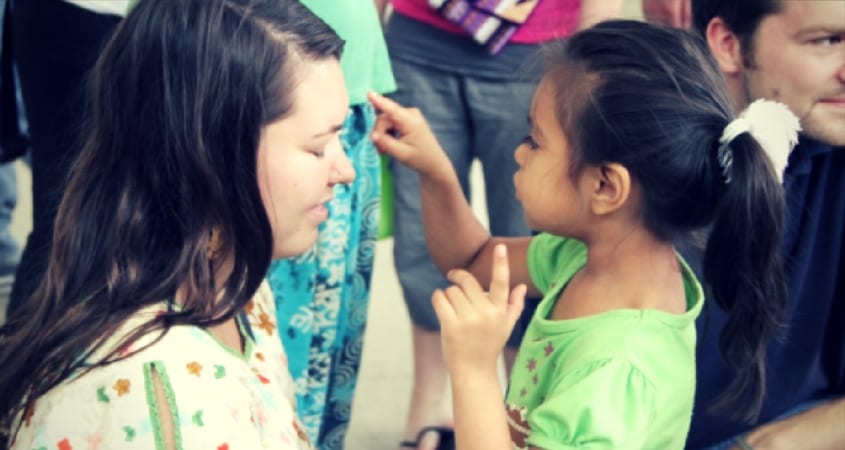
The following summer, I had a class with Jon Sobrino, SJ., the Jesuit theologian who teaches at the Central American University (UCA) and whose companions were murdered at the UCA in 1989 because of their commitments to working for justice and peace in El Salvador. Sobrino developed his Christology from his lived experiences with the suffering poor of El Salvador – the “crucified peoples” of history. In class, Sobrino introduced us to a different face of Christ. Rather than an abstract person who identifies with the powerful and passively accepts unjust suffering, Sobrino described how the poor in El Salvador viewed Christ as “the Liberator.” Sobrino taught me that where and with whom we stand makes a difference when it comes to doing theology.
One of my former students, Jesse Sullivan, gave a talk a few years ago while he was studying in Stanford’s MBA program. Charged with the task of sharing his “one life changing idea” with professors and students, he spoke about choosing life over luxury. Jesse challenged his academic community to turn statistics of people living in poverty into our brothers and sisters by traveling to the developing world and creating a loving relationship with someone in extreme poverty.
Certainly, not everyone has the opportunity to travel to a developing country. I do believe, however, that friendship with the poor and excluded, even in our own communities, will influence our answer to Jesus’ question. It certainly did for Jesse Sullivan and Jon Sobrino, S.J.
Kevin Yonkers-Talz and Trena, his wife, were co-founders and co-directors of Casa de la Solidaridad, Santa Clara University’s study abroad program in El Salvador. With over 22 years of experience living and working in Central America, they recently co-founded UCA’s new Centro Ignacio Ellacuría, which develops academic and formation programs that integrate the exploration of faith and the promotion of justice through a praxis-based pedagogy rooted in the Ignatian tradition. They are proud parents of 4 daughters: Sophia, Grace, Hannah, and Emma. Kevin holds an M.S. degree in college student development from Miami University, a M.Ed. degree in religious education from Boston College, and an Ed.D. degree in international and multicultural education from the University of San Francisco.
Trena y Kevin Yonkers-Talz son cofundadores y codirectores de la Casa de a Solidaridad, programa de estudios, basado en una experiencia de praxis en el extranjero de la Universidad de Santa Clara. Ellos han estado viviendo en San Salvador con sus 4 hijas durante los últimos 18 años.

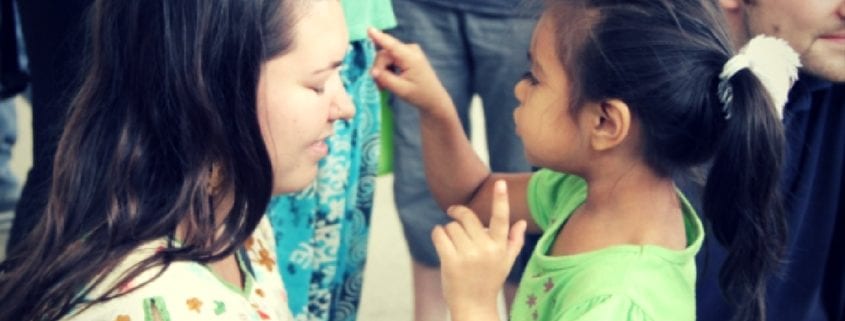
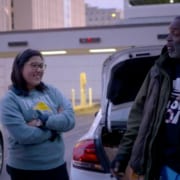

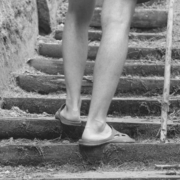

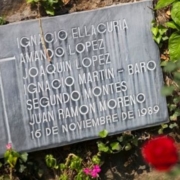



Just back from 28 years in Zambia and Malawi, I’m challenged to keep in memory, strong in heart, the people who touched me. Thanks for good thoughts of your writers — thoughts based on experience!
Peace of Christ.
Pete Henriot, S.J.
I am not Mexican but saw another side if our church when an older Mexican grandma prodded me to join the Guadalupanas in our parish. I encountered Jesus in s whole new way, many of the sentiments you described in the article, from just the poorer simple Latino people in my parish. Life changing.
Jesus inspires. He was born poor, lived poor and died poor.